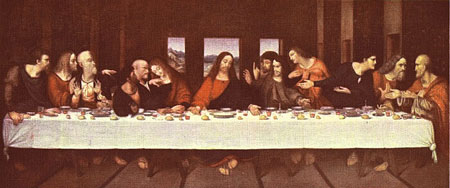Section I. Christianity and Neoplatonism

1. Neoplatonism is the intellectual environment in which was forming Christian theology. It is Wrong to reduce Neoplatonism only to Origen and Dionysius the Areopagite, as well as Christian mysticism. It's much more. Namely Christian Platonism underlies the conceptual apparatus the whole Nicene doctrinal theology. Therefore, familiarity with Neo-Platonism as a philosophy, and way of thinking and even a way of life, is a Christian imperative.
2. Neoplatonism relates to Orthodoxy in different ways and by it can be understood broadly and narrowly different things:
- The most common: the Greeks and Hellenism as such, it is the environment (social, intellectual, cultural, philosophical, aesthetic) of the origin of Christianity;
- Alexandrian school of Philo of Alexandria to Clement and Origen (Origen and Plotinus were student of Ammonius Sakkos);
- An allegorical and symbolic interpretation of the Bible (in opposition to the Antioch school of exegesis);
- Hellenistic interpretation of the Bible by Philo of Alexandria (Jewish precedent as the later Christian exegesis);
- Origen and Origenism;
- Fathers Cappadocians (St. Basil the Great, Saint. Gregory of Nyssa, St. Gregory of Nazianzus);
- The influence of Plotinus, Porphyry, Amelia, etc. by Christian writers (the same Fathers Cappadocians);
- Dionysius the Areopagite and the influence on him of Proclus;
- John Filoppon and his polemics against Proclus with the Christian position;
- St. Maximus the Confessor;
- Michael Psellos and John Italus;
- Hesychasm and the theory of the Uncreated Light;
Georgius Gemistus and Mystras-school.
3. It's about Orthodoxy in its Greek option. Neoplatonism was also in the West, and to the great schism of the strict distinction can not be carried. Therefore it is necessary to include the western fathers - St. Augustine, Boethius, Scotus Eriugena.
4. Platonism had influence on scholasticism and after the great schism (but in a different, a Catholic context), and Renaissance (Ficino, Pico Mirandola case) made a special outlook.
5. In the era of Russian religious philosophy (XIX - XX century), all these lines one way or another influenced sophiology and all her dual. It means a lot: first, Russian philosophy is inextricably linked with Neo-Platonism, and secondly, the entire culture of the Silver Age is associated with the same.
6. It is pertinent to ask: where is the place of Neoplatonism in all its senses in today's Christian self-understanding? In the West Catholic thought, even in its most conservative form, usually stops on Thomism and scholasticism, and the mystical tendencies of the more radical Platonism or otherwise dealt with in a scientific or spiritualistic context. In Orthodoxy, It seems as this topic is not systematically marked at all.
7. For the modern Russian Orthodoxy vital new acquaintance with Neo-Platonism and its topics. One could jot down a plan how to do it in stages:
- Platonic Study (including the study of Greek and the original Platonic terminology);
- The study of Neoplatonic heritage (Plotinus, Iamblichus, Proclus);
- Identification of Neoplatonic trends in the most important lines of Orthodox thought and dogma;
- Rethinking the Russian religious philosophy (Solovyov, Bulgakov, Florensky, Losev) with extensive knowledge of the position of Platonism;
- Creation of the school of orthodox neo-Platonism.
8. The most important point is an exact reconstruction of the condemnation of Platonism and Origenism under Justinian, the conviction of John Italus, hesychastic disputes, fighting Imiaslavie. Necessary to accurately restore the context, meaning and purpose of all these things, implement deconstruction. We need to understand the structure and ideological foundations of criticism of Platonism at different stages of Christian doctrine and Christian history in general.
9. It is useful tocarry out comparative analysis of how the Neoplatonic trends have developed in other monotheistic religions - Islam (al-falasafa, al-tassavuf, Ishraq, Shiite gnosis) and Judaism (Kabbalah). In addition it is important to carefully study the influence of Neoplatonism on Renaissance and a number of mystical and occult movements (from Bruno to the Rosicrucian and Hermetic).
10. The value of Neo-Platonism in modern Orthodoxy is fundamentally underestimated. Intellectualism is not the only way a Christian, but the lack of intelligence or emotional dementia and systematic blind devotsionalizm unlikely, in turn, are the right ways. Not everybody deep understand of Christian dogma. But this is very bad. Should everybody. And the Neoplatonic philosophy will help us understand them better.

